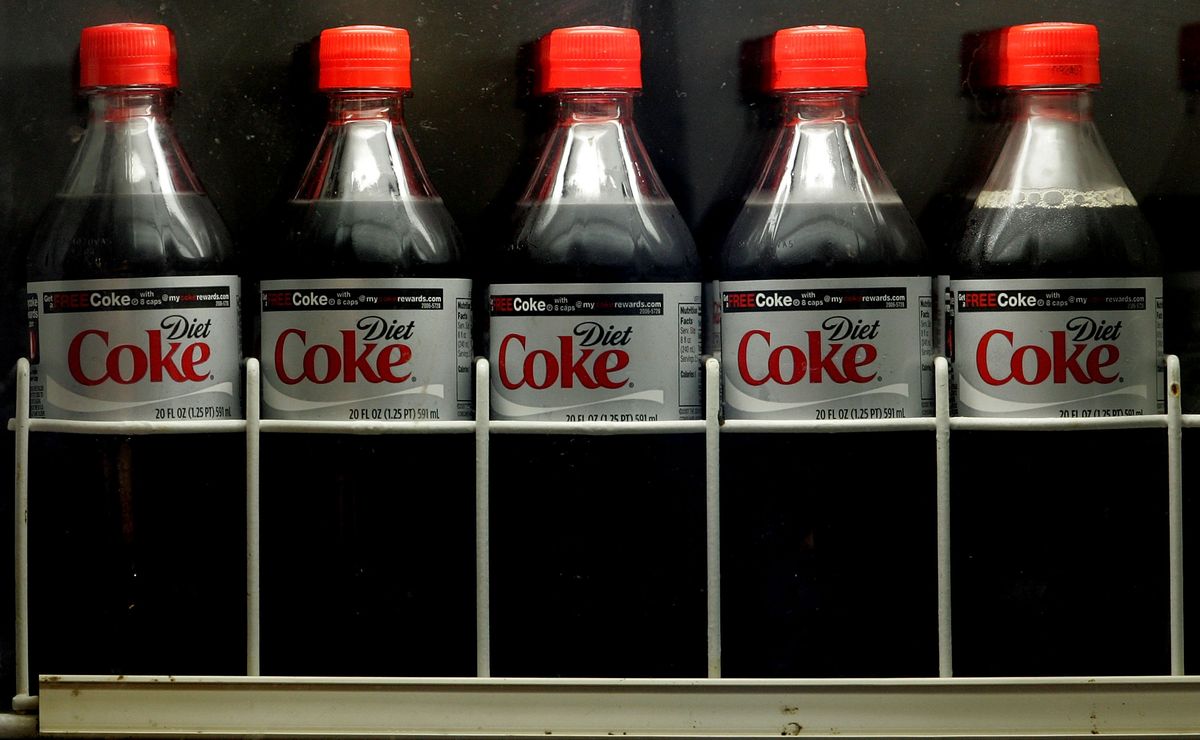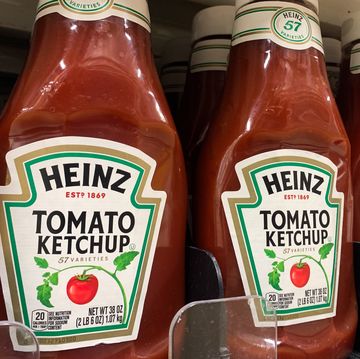A major announcement from the International Agency for Research on Cancer (IARC) is heading our way in the very near future. And if you're a diet soda drinker or chew sugar-free gum, you might want to listen up.
Reuters has learned that the IARC, which is the cancer agency of the World Health Organization (WHO), is set to declare that aspartame, a very common artificial sweetener, is "possibly carcinogenic to humans."
Discovered in 1965 by James M. Schlatter, aspartame is used in many common products, including diet sodas, diet drink mixes, sugar free Jello-O, sugar-free gum, tabletop sweeteners, and more. The artificial sweetener has been used in the U.S. since the early 1980s and is exponentially sweeter than sucrose.
More From Delish

The American Cancer Society previously reported that the results of cancer studies involving aspartame have been inconsistent.
"Some of the concerns about cancer stem from the results of studies in rats published by a group of Italian researchers, which suggested aspartame might increase the risk of some blood-related cancers (leukemias and lymphomas). However, later reviews of the data from these studies have called these results into question," read an article from the organization.
With the IARC expected to list aspartame as "possibly carcinogenic to humans," does this mean you should immediately throw out that can of Diet Coke? Not necessarily.
According to WHO, "possibly carcinogenic to humans" means that there is limited evidence of carcinogenicity in humans, sufficient evidence of carcinogenicity in experimental animals, and strong evidence that the agent exhibits key characteristics of carcinogens.
Also listed as "possibly carcinogenic to humans" by WHO is art glass, glass containers, and workplace exposure for barbers and hairdressers.
Although the term "possibly carcinogenic to humans" can be a bit vague, it does have the potential to cause concern among consumers and stir up potential legal drama for manufacturers and regulators.
Earlier this year, it also was reported that erythritol, a zero-calorie artificial sweetener in keto foods, was linked to causing heart attacks and strokes.
Danielle Harling is an Atlanta-based freelance writer with a love for colorfully designed-spaces, craft cocktails and online window shopping (usually for budget-shattering designer heels). Her past work has appeared on Fodor’s, Forbes, MyDomaine, Architectural Digest and more.












